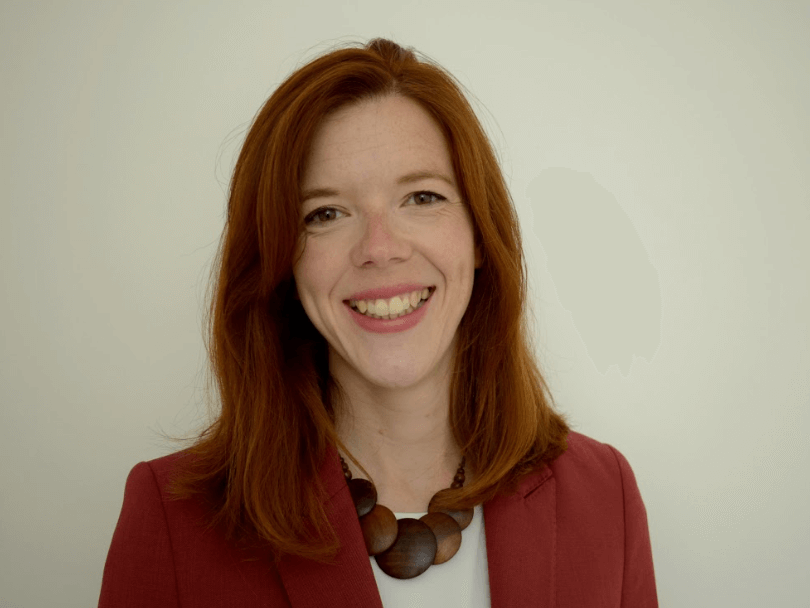
Helen Undy, Director, Money and Mental Health
Introducing our new Director - Helen Undy
30 July 2018
Today I take over as the new permanent Director of The Money and Mental Health Policy Institute. On a personal note, it’s a very proud day for me. I’ve worked in mental health for the best part of a decade, and I carry with me the personal stories shared with me over my time in the sector, and from working with care leavers and people experiencing homelessness before that. The stories of discrimination, financial difficulty, family breakup, isolation and poor services. But also the stories of personal resilience, compassionate professionals, tireless carers, innovative services and passion for change. To have the opportunity to lead a team whose job is, at its most straightforward, to make life better for these people – is a real honour.
The power of the people…
I’m a people person. I’m motivated by the people with experience of mental health problems who we exist to serve. I’m motivated by the passion and commitment of the talented Money and Mental Health team. And I’m motivated by the people we challenge – whether in government, banks, regulators or mental health services – who have the courage to accept that things could be done differently and to take action.
I may not be an entirely unfamiliar face; for the last two years I’ve led the Institute’s communications and influencing work, working with the team to bring about change in the financial services industry, in policy and in the health system. So I know how fortunate Money and Mental Health is to be surrounded by committed and passionate people. As anthropologist Margaret Mead said:
“Never doubt that a small group of thoughtful, committed citizens can change the world; indeed, it’s the only thing that ever has.”
This quote has now become somewhat of a cliche – but only because it speaks such a fundamental truth that it’s made it onto greetings cards and posters in student bedrooms. Unfortunately current politics suggests that perhaps a single, less thoughtful citizen may also be capable of changing the world – but that doesn’t lessen the truth that we can too, or the importance that we should.
What we’ve achieved so far
Over the last two years Money and Mental Health has achieved some real change. So far we’ve secured:
- ‘Recovery space’ free from debt collection activity and escalating fees for everyone using mental health crisis services
- A government commitment to end charging for a crucial piece of paperwork for people with debt and mental health problems
- Minimum regulatory standards for people with mental health problems across essential services markets (like telecoms, banking and energy)
- Changes to financial services products and processes, including carers cards, gambling blocks and spending controls.
We’ve achieved these things as a team of just nine people because of the army of supporters who have rallied behind us.
Squad goals...
The Money and Mental Health Research Community now has 5,000 members with personal experience of mental health problems. They campaign with us, share their ideas and insights, and tell us when we’re headed in the wrong direction. I am committed to ensuring that this focus on lived experience continues to be at the heart of the charity, and to exploring new ways to involve people directly in our work.
Our professional network is now nearly 700 people, working in industries like financial services, mental health, policy or technology – and all keen to attend our events, learn from the research, and create change in their own organisations.
And our wider network of support has been an enormous resource – including the 23 national charities who signed up to back our recovery space campaign, our talented advisory board who shape our work, and our committed trustees who provide our overall strategy and vision.
Get involved
Over the next few years we have big plans. We’re researching how people can be protected from financial harm during periods out of work. We’re building on our recent work with the family of Jerome Rogers to look at the wider issue of suicide and financial difficulty. And we’ll be taking a closer look at issues like open banking and use of data, the benefits system and continuing our focus on the accessibility of essential services.
There’s a lot to do, and our ‘small’ group of thoughtful, committed citizens is becoming much larger. You can be part of it:
- If you have personal experience of mental health problems – join our Research Community to take part in our research
- If you work in mental health, debt advice, essential services, regulation or policy – join our professional network to be the first to hear about our new research
- If you’d like to join our team, keep an eye on the jobs page – we have opportunities coming up, including to join us as a trustee and help guide the Institute on the next exciting steps in our journey.
